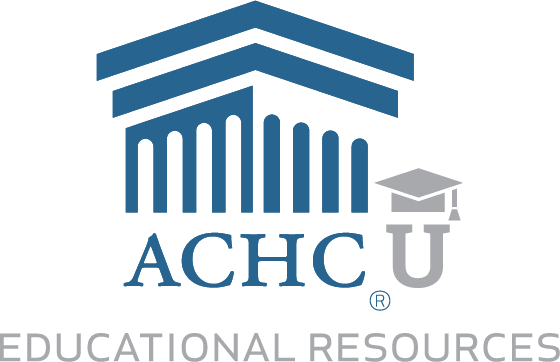MASTER CLASS SERIES
Guidance from Top Industry Experts
Learn from the experts.
Master classes are designed to help Ambulatory Surgery Center (ASC) leaders take organizations to the next level.
Each master class series is designed to provide ASC leaders with a set of practical ideas and actions to improve their organizations, and at the end of each session, participants will also gain access to a master educator to answer questions.
-
Physical Environment and Life Safety Master Class – 2025 Series
$499
Managing Life Safety and the Physical Environment in the Ambulatory Surgery Center setting is a complex undertaking that requires the development of programs that assess risk, formulate plans, and establish mitigation activities including training and monitoring to ensure a safe environment. This four-part series offers essential information to enhance your operational efficiency.
Each 1.5-hour session consists of a one-hour presentation followed by 30 minutes for Q&A. Attend live and/or view the recordings at your convenience. Access to on-demand recordings will follow each session and will be available until January 2026.
Save when you register for the full series, or select the individual classes that meet your needs.

Taught by Richard L. Parker, MBA, CHFM, FACHE, FASHE, ACHC Associate Director, Life Safety and Physical Environment.
Richard has over 25 years’ experience in engineering, construction, security, environmental services, food and nutrition services, patient transport, laundry and linen services, and communications in hospital settings. He is a Fellow of the American College of Healthcare Executives (FACHE) and a Fellow of the American Society for Healthcare Engineering (FASHE), for which he is an active participant in the Arizona chapter.
Class 1 | 3:00 p.m. to 4:30 p.m. ET Tuesday, February 25, 2025
Managing the Life Safety Portion of the Survey
Learn the steps that Ambulatory Surgery Center (ASC) leaders can take to be fully prepared for the life safety portion of a triennial accreditation survey. The approach puts greater control in the facility manager’s hands and provides suggestions for making the most of the survey experience.
- Learn key steps for preparing for a survey to ensure smooth and effective execution.
- Gain insights into how to take greater control of the survey process.
- Explore practical strategies for addressing common challenges encountered during surveys.
- Leverage survey findings to enhance facility performance and operational efficiency.
$149
Class 2 | 3:00 p.m. to 4:30 p.m. ET Tuesday, May 27, 2025
Alternative Life Safety Measures – Policy and Implementation
Gain a practical understanding of Alternative Life Safety Measures (ALSM), ensuring compliance and safety during construction, maintenance, or emergency.
- Define Alternative Life Safety Measures (ALSM) and identify when these measures must be implemented in response to life safety deficiencies.
- Learn the importance of risk assessments and the role of compensating measures, including compliance with directives from the Authority Having Jurisdiction (AHJ).
- Outline key components of an ALSM daily inspection process, including temporary systems, fire safety equipment, and environmental controls to maintain patient and staff safety.
$149
Class 3 | 3:00 p.m. to 4:30 p.m. ET Tuesday, August 26, 2025
Hazard Vulnerability Analysis
Follow the process of conducting a Hazard Vulnerability Analysis (HVA) and integrating it into an organization’s Emergency Operations Plan (EOP) using an all-hazards approach tailored to the organization’s unique risks and community needs.
- Understand the purpose and process of conducting a Hazard Vulnerability Analysis (HVA) to identify and prioritize facility-specific and community-specific risks.
- Learn how to integrate the results of an HVA into a comprehensive Emergency Operations Plan (EOP) that ensures continuity of operations and patient safety during emergencies.
- Explore the critical elements of an all-hazards approach, including considerations for natural disasters, technological disruptions, pandemics, and care-related emergencies.
- Identify strategies for collaborating with community emergency response agencies and stakeholders to effectively align hazard mitigation and response efforts.
$149
Class 4 | 3:00 p.m. to 4:30 p.m. ET Tuesday, November 18, 2025
Emergency Management Training and Exercises
Get guidance on developing, implementing, and evaluating effective emergency management training programs and exercises to ensure preparedness, staff competency, and regulatory compliance.
- Understand the key components of an emergency management training program, including alignment with the Emergency Operations Plan (EOP), risk assessment (HVA), policies and procedures, and communication plan.
- Identify the regulatory requirements for emergency management training and exercises, including timelines for training, documentation, and staff competency demonstration.
- Explore various types of emergency exercises (e.g., full-scale, functional, tabletop) and their roles in testing the effectiveness of an ASC’s emergency plan.
- Learn how to analyze, document, and improve emergency exercises and reactions to real-world events to enhance the ASC’s preparedness and response capabilities.


